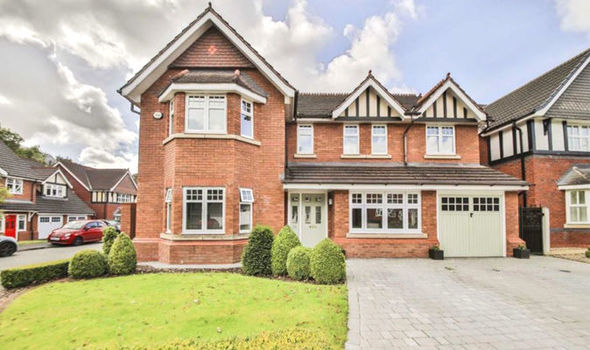House prices across Britain fell by 1.4% in November, in what has been the biggest drop since June 2020, Nationwide found. The building society added that annual house price growth dropped from 7.2% to 4.4% in October, as the property market continues to cope with the fallout from September’s mini-budget. Whilst the average property price fell from £268,282 to £263,788 in October, affordability issues continue to weigh down on demand with the increase of mortgage prices and pressure from inflation leaving millions of households under financial strain. Analysts have predicted that house prices will fall by 9% over the next two years; amidst continuous turbulence on financial markets, property experts Simon Bath and David Hannah discuss what this means for the housing market and the effects this could have on homeowners and prospective buyers.
Affordable mortgage products have become increasingly scarce for aspiring homebuyers, with the rise in mortgage rates consequently leading to lenders suspending hundreds of mortgage products amidst the current economic landscape. Homeowners are also feeling the heat, with recent reports revealing that Brits across the UK are spending 45% of their income on a typical mortgage repayment – in London, this figure rises to a staggering 75%.
Banks have already increased their loan loss reserves to prepare for the storm ahead, with many expecting mortgage defaults to rise sharply throughout the next year. From June to August this year, Santander put aside £138M for defaults, while Barclays stored away £81M in the same period. Lloyds Banking Group similarly banked a staggering £668M for protection against mortgage and loan defaults in Q3.
Properties in the UK are now more unaffordable than ever, with figures released by the ONS showing that the average home sold in England cost the equivalent of 8.7 times the average annual disposable income – which is the worst affordability ratio in England since records began in 1999. For many Brits, getting onto the property ladder is now an unachievable dream, with an unprecedented level of demand causing a severe undersupply of housing-which the industry has been suffering from for the past few years.
Simon Bath, CEO of iPlace Global, comments:
“Whilst house prices have fallen at the fastest rate in two years, the fallout from the mini-Budget is still definitely being felt especially because the jump in mortgage rates has completely changed affordability calculations and lending criteria. Someone who would’ve received approval for a mortgage six months ago for example, may no longer receive it this month, making it even tougher for aspiring buyers.
“Throughout the past few years, we’ve seen demand continue to outweigh stock levels, however we’re starting to see this dwindle – it’ll be interesting to see what happens between the period of Christmas and New Year, as I think this will be a telling time for the housing market. Normally this is when there’s a big stimulus in the market, so if we don’t get that big bump in demand in January, it could suggest that the fall out of recent events could linger even further into the New Year.”
David Hannah, Group Chairman of Cornerstone Tax, comments:
“Although house prices have dropped in the past few months, I expect that we could see this jump back up by next year. We’ve had two years of the pandemic, necessary pandemic spending, we’ve had the war in Ukraine and that has increased inflation which has led to a massive increase in interest rates. Recent government policy in the UK has led to a devaluation in sterling and at least one if not two regime changes in the conservative party, and all of these factors have added to a sense of uncertainty of what’s going to happen in 2023.
“In early 2023 we will see slow demand. Only those people that are forced to sell will see a small fall in prices, however, over the whole of 2023, I expect to see low to mid to single-digit growth over the UK property market- between 5-8%. Despite the negative headlines we have been seeing, there is an underlying pressure on the market and that is leading to upward pressure on prices.
“We now have a growing number of people that want to move to the UK. The first is the overseas investor who regards UK property as a safe haven for their money because the country they principally live in is not economically or politically safe. The second are those who want to become second homeowners. The third and final group is those who want to leave their country of birth and are in need of a home. All of these factors over the course of the next 12 months, I believe, are what will support the UK market and leave it with a modest and steady rate of growth.
“There will be NO crash and NO 10-20% fall in property prices that we saw in the noughties. The UK property market has tended to be more stable than any other global market in property.”




